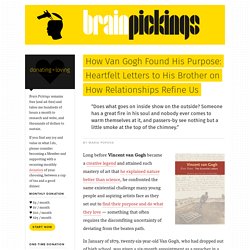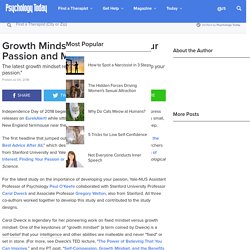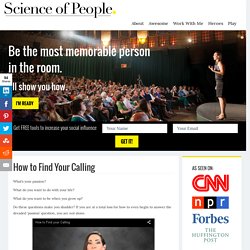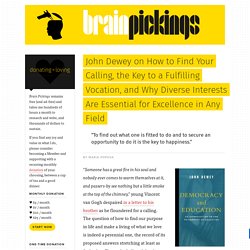

A few years ago, a woman approached me after I finished a keynote presentation.

In the speech, I had mentioned the importance of living with intention. That point made an impression. She realized she had not been intentional, particularly as it related to her career. As it turns out, she was a doctor with a very successful practice. She was extremely busy and making more money than she had dreamed possible. “If I’m honest, I think I became a doctor because my father was a doctor.
“But I hate it,” she continued. Do what you love, love what you do: An omnipresent mantra that’s bad for work and workers. Photo courtesy Mario de Armas/design*sponge “Do what you love.

Love what you do.” The command is framed and perched in a living room that can only be described as “well-curated.” A picture of this room appeared first on a popular design blog and has been pinned, tumbl’d, and liked thousands of times. Though it introduces exhortations to labor into a space of leisure, the “do what you love” living room is the place all those pinners and likers long to be.
How Van Gogh Found His Purpose: Heartfelt Letters to His Brother on How Relationships Refine Us. Long before Vincent van Gogh became a creative legend and attained such mastery of art that he explained nature better than science, he confronted the same existential challenge many young people and aspiring artists face as they set out to find their purpose and do what they love — something that often requires the discomfiting uncertainty of deviating from the beaten path.

In January of 1879, twenty-six-year-old Van Gogh, who had dropped out of high school, was given a six-month appointment as a preacher in a small village — a job that consisted of giving Bible readings, teaching schoolchildren, and caring for the sick and poor. He devoted himself wholeheartedly to the task and, in solidarity with the poor, gave away all of his possessions to live in a tiny hut, where he slept on the ground. But his commitment backfired — the church committee that had hired him saw this as extravagant posturing of humility and fired him. Why some of us don't have one true calling. Growth Mindset Advice: Take Your Passion and Make It Happen! Independence Day of 2018 began for me by reading the latest science-based press releases on EurekAlert!

While sitting alone at an old kitchen table in my family’s small, New England farmhouse near the Berkshires while everyone else was still asleep. The first headline that jumped out at me was, “'Find Your Passion' May Not Be the Best Advice After All,” which describes a soon-to-be-published study by researchers from Stanford University and Yale-NUS College.
Their paper, “Implicit Theories of Interest: Finding Your Passion or Developing It?” Is currently in press at Psychological Science. For the latest study on the importance of developing your passion, Yale-NUS Assistant Professor of Psychology Paul O'Keefe collaborated with Stanford University Professor Carol Dweck and Associate Professor Gregory Walton, also from Stanford. Article continues after advertisement Carol Dweck is legendary for her pioneering work on fixed mindset versus growth mindset. Source: Photo by Christopher Bergland. Passions. Talents.
Ikigai. Personal Purpose. Know-How to Become. How to Find Your Calling. What’s your passion?

What do you want to do with your life? What do you want to be when you grow up? Do these questions make you shudder? If you are at a total loss for how to even begin to answer the dreaded ‘passion’ question, you are not alone. Let’s kick off this post with a quote from the novel The 5th Wave by Rick Yancey. “God doesn’t call the equipped. God equips the called. And you have been called.” So, with this post, I call on you. Born for This by Chris Guillebeau This is the book that can change the rest of your life. John Dewey on How to Find Your Calling, the Key to a Fulfilling Vocation, and Why Diverse Interests Are Essential for Excellence in Any Field.
“Someone has a great fire in his soul and nobody ever comes to warm themselves at it, and passers-by see nothing but a little smoke at the top of the chimney,” young Vincent van Gogh despaired in a letter to his brother as he floundered for a calling.

The question of how to find our purpose in life and make a living of what we love is indeed a perennial one, the record of its proposed answers stretching at least as far back as Plato, who believed that it was the role of education to uncover each person’s talent, train its mastery, and apply it toward the flourishing of society. More than two millennia later, philosopher, psychologist, and education reformer John Dewey (October 20, 1859–June 1, 1952) — one of the finest minds our civilization has produced, whose insights on how we think and the real role of education continue to refine the human spirit — addressed this abiding question of purpose in his 1916 masterwork Democracy and Education (public library).
Podcasts. Youth. Meaning at Work.